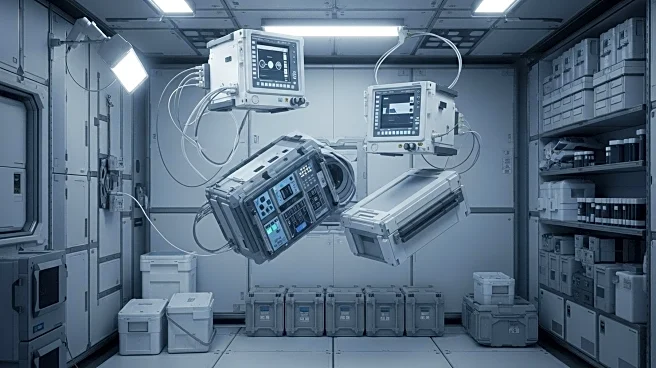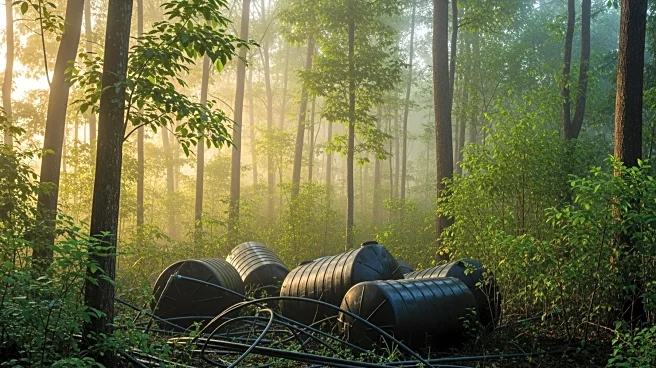What's Happening?
NASA astronauts aboard the International Space Station (ISS) are engaged in a series of scientific activities, including cardiac health research and unpacking supplies from the recently arrived Cygnus XL cargo craft. Expedition 73 members, including NASA Flight Engineers Mike Fincke and Jonny Kim, are conducting ultrasound scans to study the effects of space travel on cardiovascular health. This research aims to identify potential space-induced plaque buildup or accelerated aging-like symptoms in the arteries. Additionally, the crew is unpacking 11,000 pounds of new science experiments and supplies delivered by the Cygnus XL. This includes portable science freezers containing research samples and new cloud computing hardware installed in the Destiny laboratory module. The crew is also involved in spacesuit maintenance and computer networking upgrades, ensuring efficient data transmission throughout the ISS.
Why It's Important?
The ongoing research into cardiovascular health is crucial for understanding the long-term effects of space travel on human physiology. Insights gained from these studies can inform future missions, potentially improving astronaut health and safety. The unpacking of new scientific equipment and supplies supports a wide range of experiments that contribute to advancements in space science and technology. These activities highlight the collaborative efforts of international space agencies, including NASA and JAXA, in maintaining and enhancing the capabilities of the ISS. The efficient operation and maintenance of the ISS are vital for its role as a hub for scientific research and international cooperation in space exploration.
What's Next?
The crew will continue to conduct scientific experiments and maintain the ISS's systems. Upcoming activities include planned spacewalks, for which preparations are underway, involving spacesuit checks and installations. The ongoing research and experiments will provide valuable data that can be used to improve future space missions and enhance our understanding of human health in space. The international collaboration on the ISS will persist, with contributions from various space agencies ensuring the station remains a pivotal platform for scientific discovery.








